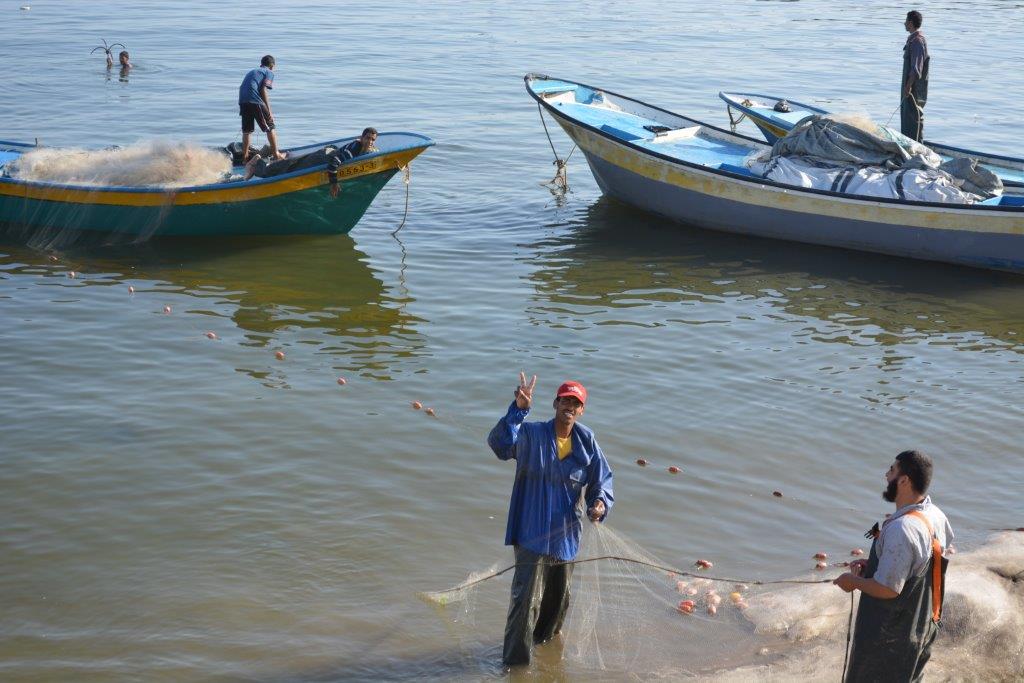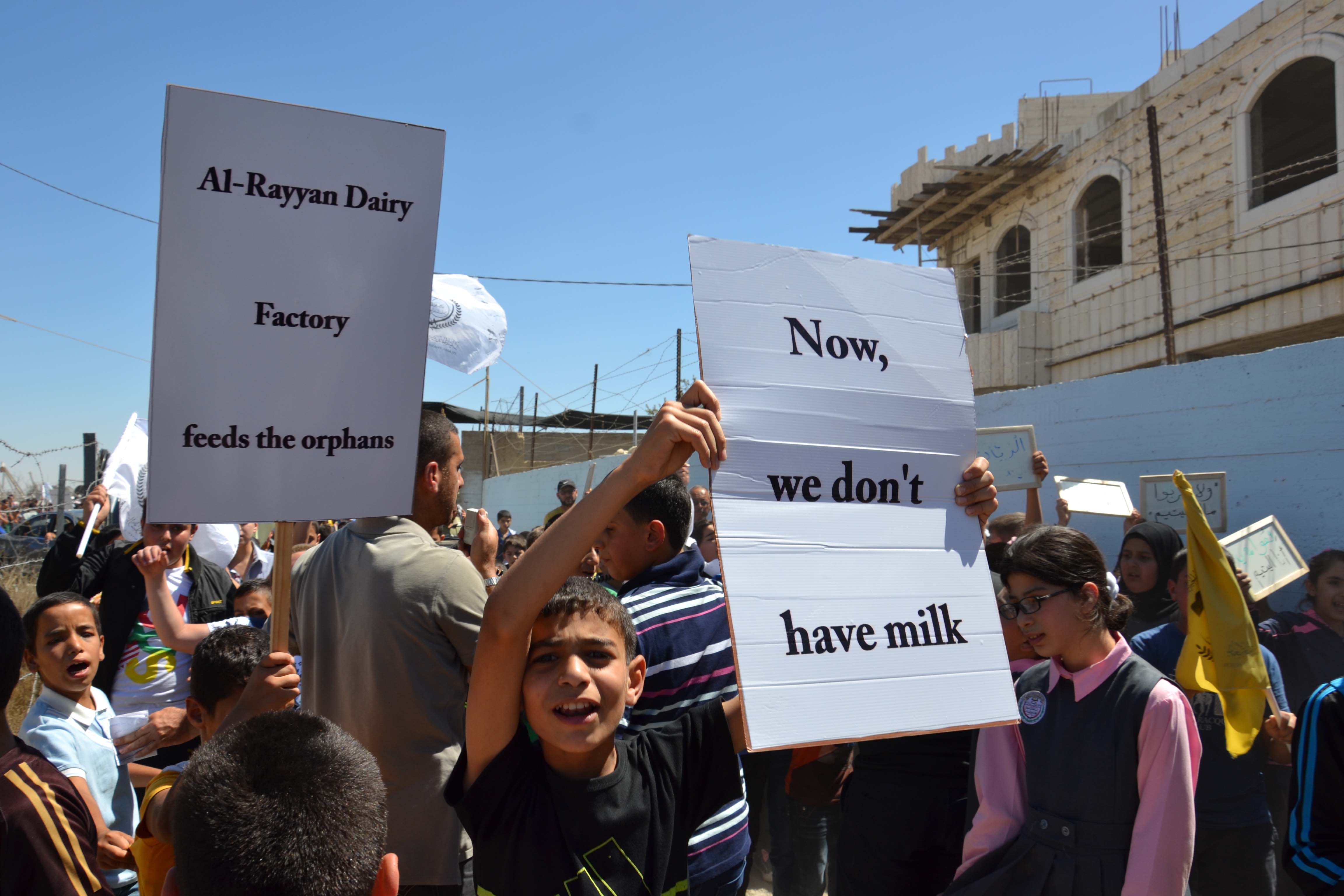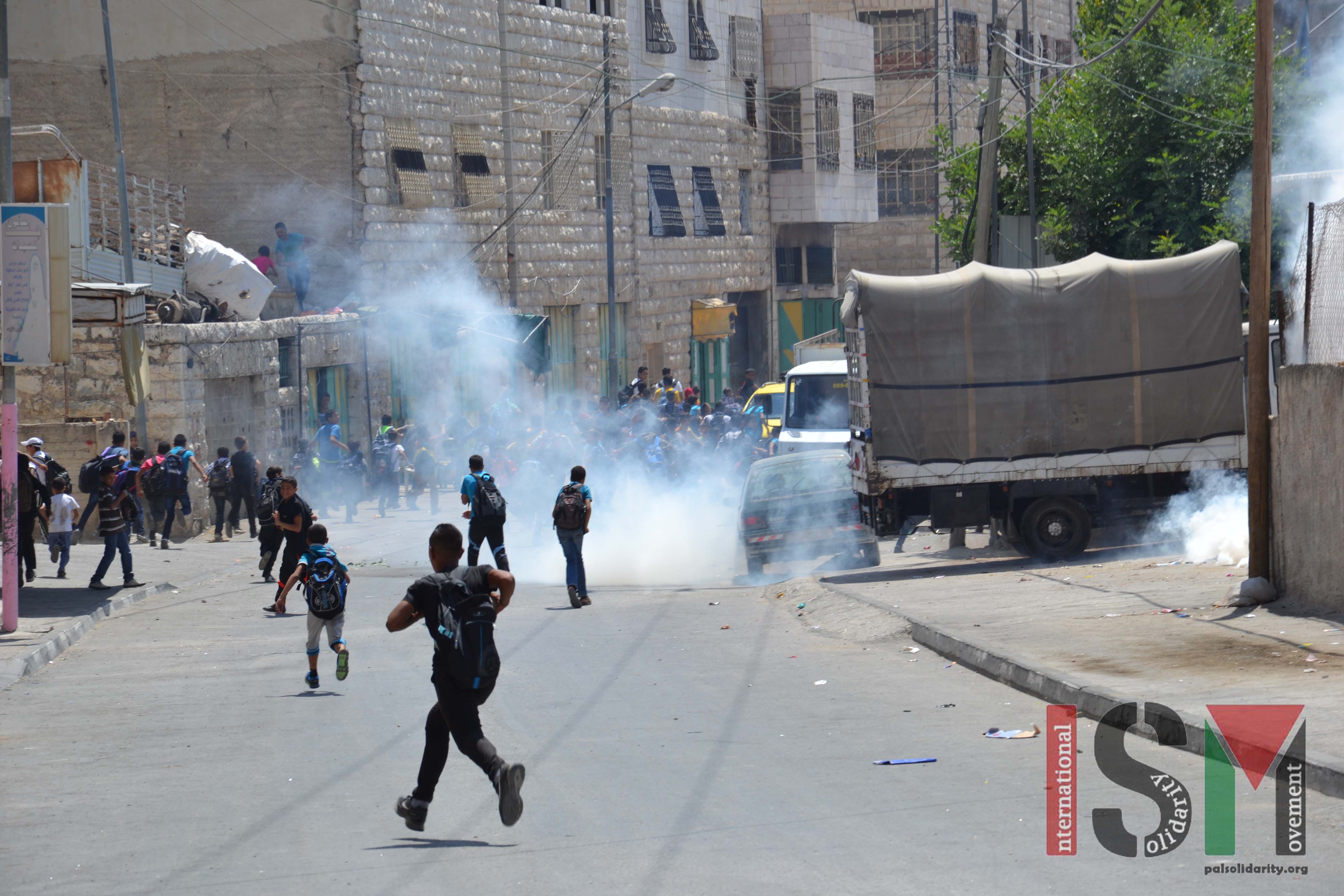Tag: Children
-
Final journal from Gaza
17th September | Charlie Andreasson | Gaza, Occupied Palestine This is what seems to be the last thing I will write from Gaza. Not that there is nothing more to tell, there lies a new story under every stone, but because I will soon leave this small coastal strip where there is so much to…
-
Orphans protest demolition of dairy factory
5th September 2014 | International Solidarity Movement, Khalil team | Hebron, Occupied Palestine Yesterday, 300 orphans staged a protest following the demolition of Al-Rayyan Dairy Factory, north of Hebron, which occurred in the early hours of 1st September 2014. The future of the children remains unclear as the two orphanages they live in, the Hebron Charity House…
-
When the school day ends with tear gas
2nd September 2014 | International Solidarity Movement, Khalil team | Hebron, Occupied Palestine ISM watched over two different checkpoints in al-Khalil (Hebron) on the 31st of August, Qeitun (209) and Salaymeh (29), both separating the H1 and H2 zone in this occupied city (H1 is supposedly under full Palestinian Authority control, H2 under full Israeli military control).…



